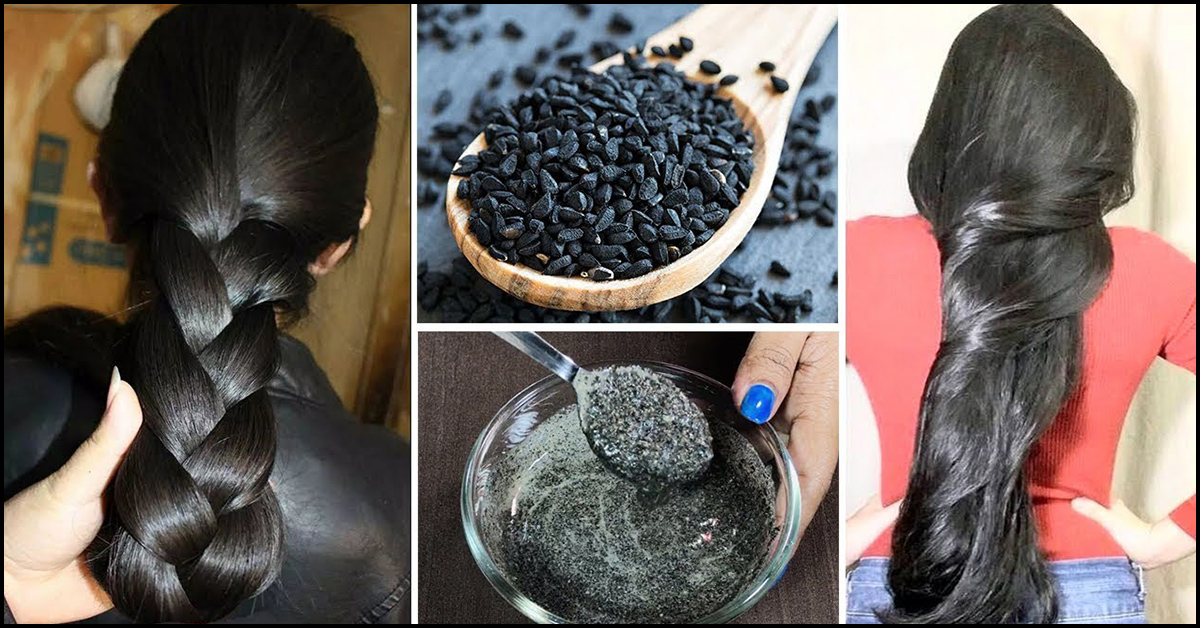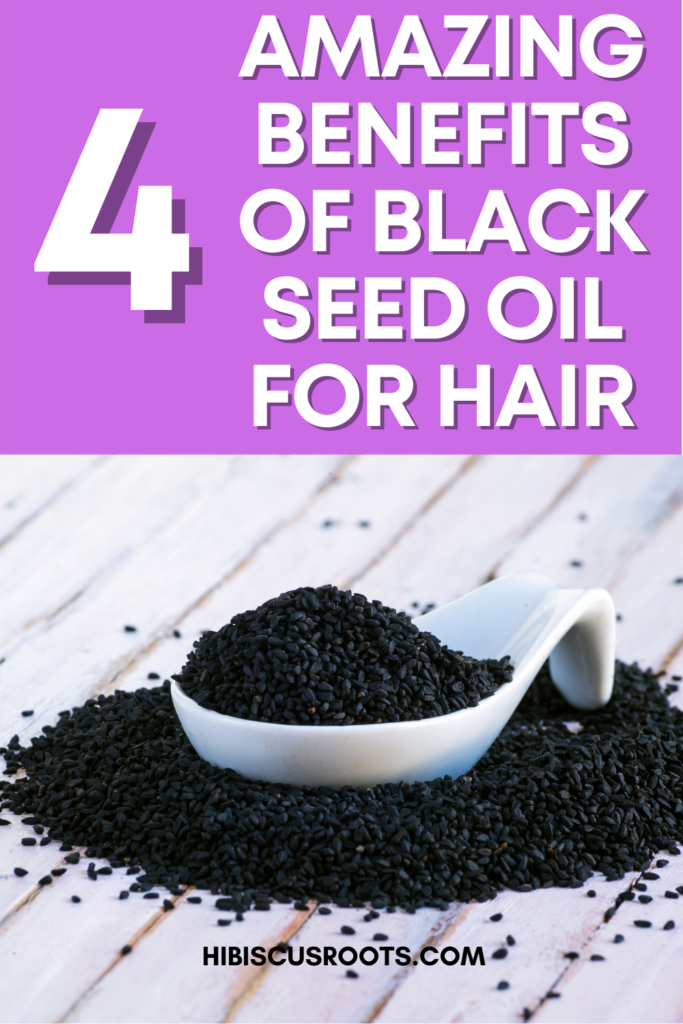Table Of Content
Also referred to as black cumin or nigella sativa, black seed oil is thought to naturally restore hair growth in thinning areas thanks to its high concentration of thymoquinone, a powerful antihistamine. Yep, antihistamines are often prescribed to alopecia patients to help regrow hair, and get this, it’s actually an essential oil. That means it’s not thick like olive or coconut oil, and it has added therapeutic benefits. It also means that 100 percent pure, unrefined and cold-pressed black seed oil has to be diluted in another carrier oil (such as coconut or olive), because it’s too potent on its own. And when diluted, it can be used directly on the scalp to reduce inflammation, stimulate hair growth and reduce flakiness and sensitivity. However, even if you don’t have any scalp conditions, it helps to make hair healthy, soft, hydrated and shiny with consistent use.
What Type Of Black Seed Oil Should You Use For Hair Growth?
You can get a little fancier with scalp-massaging tools like the Mount Lai Jade Massaging Gua Sha Comb or Ceremonia Scalp Masajeador. Some research suggests that black seed oil could be beneficial for treating vitiligo, a disorder that causes loss of pigmentation in the skin. However, it is important to note that this study used black seed oil combined with other ingredients, so there’s no way to know in this case whether black seed oil was behind the beneficial effects. There is limited scientific research on the effects of black seed oil on psoriasis symptoms in humans. However, some people may still find it beneficial as part of a broader professional treatment plan.
The 11 Best Beard Oils for Black Men, According to Experts
Shampoos, for example, can prevent damage to the hair while cleansing and treating the scalp. Manufacturers can formulate them to address everything from dandruff and greasy hair to frizz. The manufacturer designed this conditioner to prevent breakage in dry hair. Please note that the writer of this article has not tried these products.
Best THC-free: Shea Moisture Lush Length Conditioner
Kim says there are few known side effects of black seed oil and doesn’t advise using it if you’re pregnant. "It has also been used in obesity to reduce body weight and BMI, lower blood pressure and blood sugars, especially in type 2 diabetics, and lowering cholesterol levels," Dr. Posina says. "However, all these claims are very preliminary and need substantial clinical trials to support them, but more studies are slowly coming up now." The use of hemp seed oil for hair care is not new, but its popularity has increased in recent years. Keep reading to learn more about hemp seed oil and how it may benefit the hair.
Why Seed Oils Might Be Bad for You - Health Essentials
Why Seed Oils Might Be Bad for You.
Posted: Tue, 03 Oct 2023 07:00:00 GMT [source]
“Over time, with UV rays and UV damage, there’s something called free radical damage that just accelerates the aging process,” notes Dr. Penzi. While we usually talk about this as it relates to the skin, it’s comparable with hair, too. Any time there’s inflammation in your scalp, you’re hair’s not going to grow as well, says Dr. Penzi. But the anti-inflammatory and antioxidant properties in black seed oil tame this inflammation to encourage healthier hair growth. Who doesn't want long, luscious hair that people can't help but compliment? With so many people sharing in this daydream, it's no wonder there seems to be a never-ending list of products and ingredients people simply "swear by" to promote hair growth.
Beating Hair Loss With Black Seed and Herbal Oil
Thanks to its antimicrobial and antioxidant properties, black seed oil is often added to hair care products, including hair masks and shampoos. In another clinical trial, researchers compared the effects of scalp application of coconut oil combined with various herbs on hair growth. They found that, over four weeks, coconut oil with black seed oil was ultimately the best combination (out of five possible options) to promote hair growth. But is it worth the effort to seek it out in your hair care products or slather it all over your strands? We spoke with experts to give us the breakdown of all things black cumin seed oil. “[Beard oil] can also be used before bedtime, if your skin is extra dry,” notes Dr. Chacon.
For thousands of years, black cumin seeds and black seed oil have been used for medicinal purposes across the Middle East. Dr. Penzi explains that if your hair and scalp are dry, hair isn’t going to grow as well or look as good and you’ll have a lot more breakage. By using black seed oil topically — meaning as a hydrating oil — it naturally moisturizes your hair, including the shaft, cuticles, and follicles to ward off brittleness. Some of the most prevalent diseases these days are cardiovascular diseases, kidney disease, diabetes [4], thyroid disease [5] and cancer – among others. Each of the above-mentioned diseases can cause hair loss at some point – including some of the treatments for them, such as chemotherapy. Black seed oil is used in naturopathic medicines around the world to treat all of these ailments.
Due to a lack of research, long-term safety of using larger doses of black seed oil for medicinal purposes is unknown. Overall, more research is needed on the safety of black seed oil in humans, especially for long-term use. Nigella sativa (N. sativa) is a small flowering plant that grows in Southwest Asia, the Middle East, Southern Europe, and Northern Africa (1).

How Does Black Seed Oil Work for Hair Growth?

Antioxidants are important for health, as research has shown that they can reduce inflammation and protect against conditions like heart disease, Alzheimer’s disease, and cancer (11). Sativa seeds go by many other names, including black cumin, black caraway, nigella, fennel flower, and Roman coriander (2, 3). Drop the seeds into the water and bring them to a boil for 10 minutes before letting them cool off for five minutes. Strain the seeds out of the mixture and into a cup or jar of water, and add the extra virgin olive oil.
“[Many products] include a variety of soothing emollients such as castor oil, coconut oils, or different plant oils for hydration and soothing effects,” notes Dr. Anna H. Chacon, board certified dermatologist. Touches of sandalwood and musk seal the finish, leaving you feeling and exuding confidence. This is the big one – there is evidence that black seed oil can help stimulate healthy hair growth. A 2014 study that tested black seed oil in conjunction with coconut oil found the pairing positive enough to warrant further study.
One study in 70 healthy adults noted that 1/2 teaspoon (2.5 mL) of black seed oil twice a day for 8 weeks significantly reduced blood pressure levels, compared with a placebo (30). Studies suggest it may have numerous applications for health, including the treatment of asthma and aiding weight loss. Because the skin absorbs cold pressed black seed oil completely, it does not cause build-up when used alone on the scalp. However if you use it twice daily in a formula with other oils, cleanse with a non-sulfate shampoo at least twice a week. We have been using MAJU's Black Seed Oil for several months now and have noticed a difference in the overall health of our hair and skin. The lighter taste of this oil makes it easier to take on a daily basis, and we appreciate the fact that it contains a higher concentration of thymoquinone than most other black seed oils.
Several studies have found that black seed oil could alleviate symptoms of eczema, a skin condition characterized by dry, itchy skin. A study of 45 women with overweight or obesity showed that taking 2,000 mg of black seed oil daily for 8 weeks decreased appetite and reduced body mass index, body weight, waist circumference, and body fat. This could benefit multiple aspects of health, as some research suggests that inflammation could contribute to the development of many chronic conditions, like type 2 diabetes, heart disease, and cancer. Animal studies suggest that black seed oil could reduce inflammation and other symptoms of psoriasis.


















